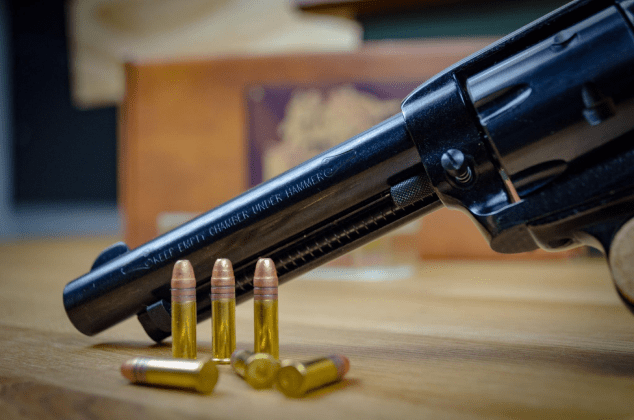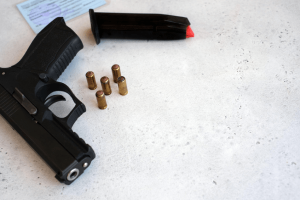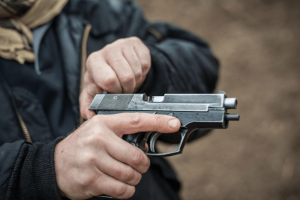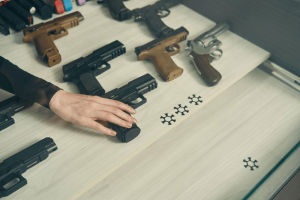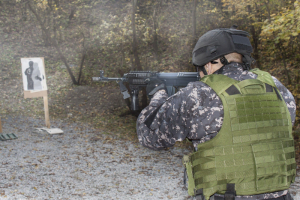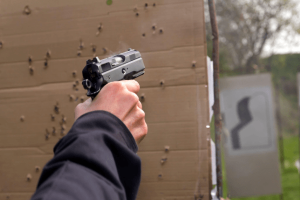Absolutely, it’s crucial for gun owners to prioritize safety and responsibility when handling firearms. One essential practice is to always unload a firearm before storing it or handing it to someone else. You can find valuable insights and guidance on responsible gun ownership, including proper unloading techniques, in the Concealed Weapons Class Florida offered by the experts at Jacksonville Gun Runners. This class can enhance your knowledge and understanding of firearm safety, ensuring a safer environment for both you and those around you.
Importance of Unloading
Avoiding Accidents and Injuries: The most evident reason for unloading a firearm is to prevent accidental discharges. Guns are designed to discharge bullets with significant force, and an accidental discharge can have severe consequences, causing injuries or even fatalities.
Extending Firearm Longevity: Regularly unloading a firearm can also extend its longevity. Keeping a gun loaded for extended periods can stress the springs and internal mechanisms, potentially affecting its performance. Unloading helps alleviate this stress, ensuring the firearm remains in good condition.
Safe Unloading Practices
Clearing the Chamber: It’s crucial to clear the chamber before anything else. Ensure no round is in the room by carefully ejecting any existing rounds and visually inspecting the section.
Removing the Magazine: Next, remove the magazine if the firearm is equipped with one. This ensures that the gun cannot fire, even if a round remains in the chamber.
Checking for Rounds: Visually and physically inspect the firearm to confirm that there are no rounds left in the chamber or the magazine well. Run your finger along the room and magazine to ensure they are empty.
Different Firearm Types and Unloading
Handguns: Unloading a firearm follows a similar process to the general unloading practice, with specific considerations based on the handgun’s make and model. Familiarize yourself with your particular handgun’s unloading procedure.
Shotguns: Shotguns have their unloading procedures, typically involving chamber checks and removing shells from the magazine tube. Always follow the shotgun manufacturer’s instructions for unloading.
Rifles: Rifles have their unloading procedures that gun owners should understand and follow meticulously. Each rifle model may have slightly different unloading mechanisms.
Unloading at a Firing Range
Range Rules and Protocols: When at a firing range, always adhere to range rules and protocols. This often includes unloading firearms at designated areas under supervision.
Ensuring Safety During Unloading: Unload your firearm with care and attention to safety, ensuring that the muzzle is pointed in a safe direction and that you clearly understand your firearm’s operation.
Unloading for Storage
Importance for Safe Storage: Before storing a firearm, unloading is a must. An unloaded gun significantly reduces any risk of accidents during handling or storage.
How to Properly Unload Before Storing: Follow the standard unloading procedures outlined earlier, then safely store the firearm in a designated, secure location.
Unloading for Cleaning
Ensuring a Safe Cleaning Process: Before cleaning a firearm, it should always be unloaded to minimize risks. Cleaning a loaded gun is dangerous and should never be attempted.
Steps for Unloading Before Cleaning: Follow the unloading steps mentioned earlier to ensure the firearm is safe before proceeding with the cleaning process.
Unloading in Emergency Situations
Quick and Safe Unloading During Emergencies: In emergencies, such as when there is a need to secure a firearm rapidly, knowing how to swiftly and safely unload a gun is crucial. Practice these steps to ensure you can do so confidently when needed.
Steps to Follow: Quickly locate and engage the firearm’s safety mechanism, remove the magazine, and clear the chamber, making the gun safe for handling and storage.
Teaching Unloading Techniques
Educating Others on Proper Unloading: Share the knowledge of safe unloading practices with fellow gun owners. Education and awareness are crucial to promoting responsible gun ownership.
Emphasizing Responsible Gun Ownership: Stress the importance of unloading a firearm as a responsible gun owner. Please encourage others to make it a standard practice.
Common Mistakes to Avoid
Overlooking Unloading: One common mistake is assuming a firearm is unloaded. Always visually and physically verify the firearm’s status to avoid accidents.
Assuming a Firearm Is Empty: Assuming a firearm is empty without properly checking can have dire consequences. Always follow the unloading procedures, even if you believe the gun is empty.
Conclusion
Unloading a firearm before storage, cleaning, or handing it over to someone else is a fundamental practice for responsible gun ownership. It ensures safety, prolongs the firearm’s life, and prevents accidents. By following the proper unloading procedures and educating others on the importance of this practice, We can help make the world a better place for everyone.
Frequently Asked Question (FAQs)
What is the purpose of the chamber in a firearm?
The chamber in a firearm is like a storage space for the bullet before it’s fired. It helps the shell get ready to be shot when the trigger is pulled.
Why is it important to behave responsibly around non-hunters?
Being careful and respectful around people who don’t hunt is important because it shows kindness and safety. Only some understand hunting, so being considerate helps avoid misunderstandings and keeps everyone safe.
What is the most significant responsibility of a hunter?
The most important job of a hunter is to hunt in a way that respects nature and wildlife. This means following laws, being safe, and not hunting more animals than needed.
What are the ethics of hunting?
Hunting ethics are rules or guidelines hunters follow to be respectful and fair. This includes not wasting animals, following hunting laws, and treating nature carefully.
How do you hunt respectfully?
Hunting respectfully means hunting in a way that doesn’t harm nature more than necessary. It involves obeying laws, using hunting skills properly, and being well-spent.
What are the 12 ethics?
There needs to be a universal set of precisely 12 ethics for hunting. Ethics can vary, but they often include respecting nature, obeying laws, not wasting animals, and being safe.
What is hunting behavior?
Hunting behavior is how a person acts while hunting. It includes using hunting tools, following rules, understanding the environment, and being safe. It’s about being responsible and respectful towards wildlife and others around you.

